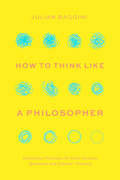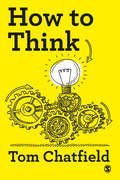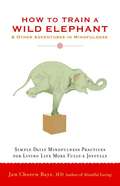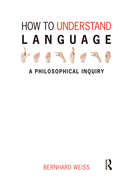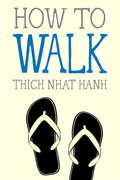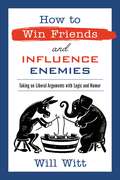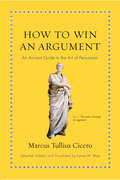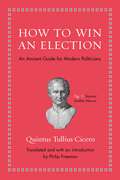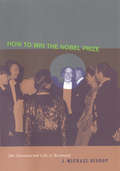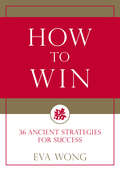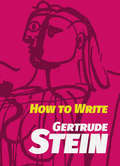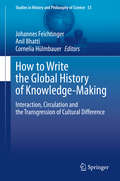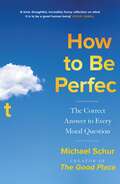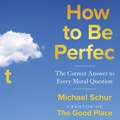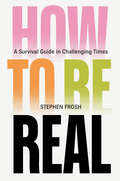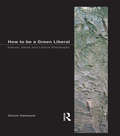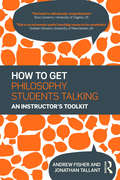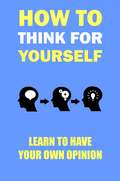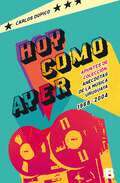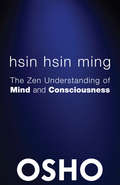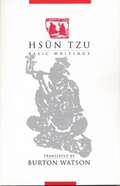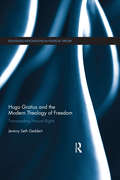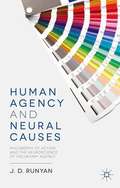- Table View
- List View
How to Think like a Philosopher: Twelve Key Principles for More Humane, Balanced, and Rational Thinking
by Julian BagginiAn invitation to the habits of good thinking from philosopher Julian Baggini. By now, it should be clear: in the face of disinformation and disaster, we cannot hot take, life hack, or meme our way to a better future. But how should we respond instead? In How to Think like a Philosopher, Julian Baggini turns to the study of reason itself for practical solutions to this question, inspired by our most eminent philosophers, past and present. Baggini offers twelve key principles for a more humane, balanced, and rational approach to thinking: pay attention; question everything (including your questions); watch your steps; follow the facts; watch your language; be eclectic; be a psychologist; know what matters; lose your ego; think for yourself, not by yourself; only connect; and don’t give up. Each chapter is chockful of real-world examples showing these principles at work—from the discovery of penicillin to the fight for trans rights—and how they lead to more thoughtful conclusions. More than a book of tips and tricks (or ways to be insufferably clever at parties), How to Think like a Philosopher is an invitation to develop the habits of good reasoning that our world desperately needs.
How to Think: Your Essential Guide to Clear, Critical Thought
by Tom ChatfieldThis is a book about thinking. Engaging and down-to-earth, it captures the habits and practices that are fundamental to clear thinking and effective study. In his warm and friendly style, Tom Chatfield shows you how to: Identify and examine your biases Engage in lively, curious skepticism See the value in emotion and use rhetoric persuasively Know when to say ′I don′t know′ Construct reasoned arguments and explanations Think critically about how you engage with technology. Short and punchy, the book views critical thinking as a skill to be continually practiced and developed. It equips you with a toolkit for clearer thinking, describing ten key concepts that help you to apply what you have learned. Including regular reflective exercises, key concepts, further readings, each chapter also offers recommendations for how to put the ideas it discusses into practice. This book is for undergraduate students and anyone looking to understand the core ideas behind critical thinking. Celebrating both self-reflection and collaboration, this book empowers you to pause, think twice and, above all, think well.
How to Think: Your Essential Guide to Clear, Critical Thought
by Tom ChatfieldThis is a book about thinking. Engaging and down-to-earth, it captures the habits and practices that are fundamental to clear thinking and effective study. In his warm and friendly style, Tom Chatfield shows you how to: Identify and examine your biases Engage in lively, curious skepticism See the value in emotion and use rhetoric persuasively Know when to say ′I don′t know′ Construct reasoned arguments and explanations Think critically about how you engage with technology. Short and punchy, the book views critical thinking as a skill to be continually practiced and developed. It equips you with a toolkit for clearer thinking, describing ten key concepts that help you to apply what you have learned. Including regular reflective exercises, key concepts, further readings, each chapter also offers recommendations for how to put the ideas it discusses into practice. This book is for undergraduate students and anyone looking to understand the core ideas behind critical thinking. Celebrating both self-reflection and collaboration, this book empowers you to pause, think twice and, above all, think well.
How to Train a Wild Elephant: And Other Adventures in Mindfulness
by Jan Chozen BaysA growing body of research is showing that mindfulness can reduce stress, improve physical health, and improve one's overall quality of life. Jan Chozen Bays, MD--physician and Zen teacher--has developed a series of simple practices to help us cultivate mindfulness as we go about our ordinary, daily lives. Exercises include: taking three deep breaths before answering the phone, noticing and adjusting your posture throughout the day, eating mindfully, and leaving no trace of yourself after using the kitchen or bathroom. Each exercise is presented with tips on how to remind yourself and a short life lesson connected with it.
How to Understand Language: A Philosophical Inquiry
by Bernhard WeissWhy are philosophers, as opposed to, say, linguists and psychologists, puzzled by language? How should we attempt to shed philosophical light on the phenomenon of language? "How to Understand Language" frames its discussion by these two questions. The book begins by thinking about the reasons that language is hard to understand from a philosophical point of view and, armed with the fruits of that discussion, begins searching for an approach to these questions. After finding fault with approaches based on philosophical analysis and on translation it undertakes an extended investigation of the programme of constructing a theory of meaning. Donald Davidson's advocacy of that approach becomes pivotal; though, the book endorses his broad approach, it argues strongly against the roles both of truth theory and of radical interpretation.
How to Walk
by Thich Nhat Hanh Jason DeantonisHow to Walk is the fourth title in Parallax's popular Mindfulness Essentials Series of how-to titles by Zen Master Thich Nhat Hanh, introducing beginners and reminding seasoned practitioners of the essentials of mindfulness practice. <P> Slow, concentrated walking while focusing on in- and out-breaths allows for a unique opportunity to be in the present. There is no need to arrive somewhere--each step is the arrival to concentration, joy, insight, and the momentary enlightenment of aliveness. When your foot touches the Earth with awareness, you make yourself alive and the Earth real, and you forget for one minute the searching, rushing, and longing that rob our daily lives of awareness and cause us to "sleepwalk" through life.Thich Nhat Hanh shares amusing stories of the impact mindful walking has on both the walker and those who notice him, and shows how mindful walking can be a technique for diminishing depression, recapturing wonder, and expressing gratitude. Pocket-sized, with original two color illustrations by Jason DeAntonis, How to Walk is a unique gift for all ages, sharing a simple practice that can have a profound effect on practitioners.
How to Win Friends and Influence Enemies: Taking On Liberal Arguments with Logic and Humor
by Will WittPolitical commentator and media personality Will Witt gives young conservatives the ammunition they need to fight back against the liberal media.Popular culture in America today is dominated by the left. Most young people have never even heard of conservative values from someone their age, and if they do, the message is often bland and outdated. Almost every Hollywood actor, musician, media personality, and role model for young people in America rejects conservative values, and Gen Zs and millennials are quick to regurgitate these viewpoints without developing their own opinions on issues. So many young conservatives in America want to stand up for their beliefs in their classrooms, at their jobs, with their friends, or on social media, but they don&’t have the tools to do so. In How to Win Friends and Influence Enemies, Will Witt arms Gen Zs and millennials with the knowledge and skills to combat the leftist narrative they hear every day.
How to Win an Argument: An Ancient Guide to the Art of Persuasion
by Marcus Tullius Cicero James M. MayAll of us are faced countless times with the challenge of persuading others, whether we're trying to win a trivial argument with a friend or convince our coworkers about an important decision. Instead of relying on untrained instinct--and often floundering or failing as a result--we'd win more arguments if we learned the timeless art of verbal persuasion, rhetoric. How to Win an Argument gathers the rhetorical wisdom of Cicero, ancient Rome's greatest orator, from across his works and combines it with passages from his legal and political speeches to show his powerful techniques in action. The result is an enlightening and entertaining practical introduction to the secrets of persuasive speaking and writing--including strategies that are just as effective in today's offices, schools, courts, and political debates as they were in the Roman forum.How to Win an Argument addresses proof based on rational argumentation, character, and emotion; the parts of a speech; the plain, middle, and grand styles; how to persuade no matter what audience or circumstances you face; and more. Cicero's words are presented in lively translations, with illuminating introductions; the book also features a brief biography of Cicero, a glossary, suggestions for further reading, and an appendix of the original Latin texts.Astonishingly relevant, this unique anthology of Cicero's rhetorical and oratorical wisdom will be enjoyed by anyone who ever needs to win arguments and influence people--in other words, all of us.
How to Win an Election: An Ancient Guide for Modern Politicians (Ancient Wisdom for Modern Readers)
by Quintus Tullius CiceroA primer on campaigning in ancient Rome that reads like a strategy memo from a modern political consultantHow to Win an Election is an ancient Roman guide for campaigning that is as up-to-date as tomorrow's headlines. In 64 BC when idealist Marcus Cicero, Rome's greatest orator, ran for consul (the highest office in the Republic), his practical brother Quintus decided he needed some no-nonsense advice on running a successful campaign. What follows in his short letter are timeless bits of political wisdom, from the importance of promising everything to everybody and reminding voters about the sexual scandals of your opponents to being a chameleon, putting on a good show for the masses, and constantly surrounding yourself with rabid supporters. Presented here in a lively and colorful new translation, with the Latin text on facing pages, this unashamedly pragmatic primer on the humble art of personal politicking is dead-on (Cicero won)—and as relevant today as when it was written.A little-known classic in the spirit of Machiavelli's Prince, How to Win an Election is required reading for politicians and everyone who enjoys watching them try to manipulate their way into office.
How to Win the Nobel Prize: An Unexpected Life in Science (The Jerusalem-Harvard Lectures #7)
by J. Michael BishopIn 1989 Michael Bishop and Harold Varmus were awarded the Nobel Prize for their discovery that normal genes under certain conditions can cause cancer. In this book, Bishop tells us how he and Varmus made their momentous discovery. More than a lively account of the making of a brilliant scientist, How to Win the Nobel Prize is also a broader narrative combining two major and intertwined strands of medical history: the long and ongoing struggles to control infectious diseases and to find and attack the causes of cancer. Alongside his own story, that of a youthful humanist evolving into an ambivalent medical student, an accidental microbiologist, and finally a world-class researcher, Bishop gives us a fast-paced and engrossing tale of the microbe hunters. It is a narrative enlivened by vivid anecdotes about our deadliest microbial enemies--the Black Death, cholera, syphilis, tuberculosis, malaria, smallpox, HIV--and by biographical sketches of the scientists who led the fight against these scourges. Bishop then provides an introduction for nonscientists to the molecular underpinnings of cancer and concludes with an analysis of many of today's most important science-related controversies--ranging from stem cell research to the attack on evolution to scientific misconduct. How to Win the Nobel Prize affords us the pleasure of hearing about science from a brilliant practitioner who is a humanist at heart. Bishop's perspective will be valued by anyone interested in biomedical research and in the past, present, and future of the battle against cancer.
How to Win: 36 Ancient Strategies for Success
by Eva WongPotent advice on how to think and act strategically in business, politics, and relationships--drawn from classic Chinese military and political expertise.The ancient strategies of war and politics have much to offer us in navigating the complicated challenges we face today--and to help us wisely and effectively meet our business, political, and relational goals. Here, eminent Chinese scholar and Taoist teacher Eva Wong unpacks the wisdom of The Thirty-Six Strategies, a collection of advice encoded in sayings, steeped in Chinese history and culture. She explores strategies attributed to renowned military philosophers such as Sun Tzu and Zhuge Liang (aka "The Sleeping Dragon"), along with other less-known advisors, that were implemented during three of the most chaotic eras of Chinese history--the Spring and Autumn Period, the Warring States Period, and the Three Kingdoms. Covering three categories of strategy--proactive, reactive, and desperate--Wong expertly connects the words of ancient military philosophers with timeless advice, as useful today as it was in the Tang dynasty (618-906) when this collection was originally gathered. In Chinese military philosophy and political theory, the thirty-six strategies are considered "yin" or "shadow" in nature, meaning that they operate best in darkness and concealment. As Wong writes, "Desperate times call for desperate measures, and since the thirty-six strategies rose out of times of war and conflict, it is inevitable that they were used to win wars, triumph over opponents, take advantage of situations, and survive when defeat is imminent."
How to Write (Sun And Moon Classics Ser. #No. 83)
by Gertrude SteinFirst published in 1931, this book contains Gertrude Stein’s thoughts about the craft of writing. It is written in her usual experimental style, yet it is not difficult to understand, and even traditionalists will find that it has many things to say to them. <P><P> Her experimental style includes such elements as disconnectedness, a love of refrain and rhyme, a search for rhythm and balance, a dislike of punctuation (especially the comma), a dismissal of the conventional significance of words, and a repetition of words and phrases. Her approach to writing is impossible to summarize, but many critics see a strain of American humor in her work, borne out immediately by some of the chapter titles: “Saving the Sentence,” “Arthur a Grammar,” “Regular Regularly in Narrative,” and “Finally George a Vocabulary.” <P><P> Readers who have not encountered Gertrude Stein or who have had difficulty with her other work will find this book useful as an entry into her writing. It is also in itself a unique, exhilarating experience.
How to Write the Global History of Knowledge-Making: Interaction, Circulation and the Transgression of Cultural Difference (Studies in History and Philosophy of Science #53)
by Johannes Feichtinger Anil Bhatti Cornelia HülmbauerThis multidisciplinary collection of essays provides a critical and comprehensive understanding of how knowledge has been made, moved and used, by whom and for what purpose. To explain how new knowledge emerges, this volume offers a two-fold conceptual move: challenging both the premise of insurmountable differences between confined, autarkic cultures and the linear, nation-centered approach to the spread of immutable stocks of knowledge. Rather, the conceptual focus of the book is on the circulation, amalgamation and reconfiguration of locally shaped bodies of knowledge on a broader, global scale. The authors emphasize that the histories of interaction have been made less transparent through the study of cultural representations thus distorting the view of how knowledge is actually produced.Leading scholars from a range of fields, including history, philosophy, social anthropology and comparative culture research, have contributed chapters which cover the period from the early modern age to the present day and investigate settings in Africa, Asia, and Europe. Their particular focus is on areas that have largely been neglected until now. In this work, readers from many disciplines will find new approaches to writing the global history of knowledge-making, especially historians, scholars of the history and philosophy of science, and those in culture studies.
How to be Perfect: The Correct Answer to Every Moral Question – by the creator of the Netflix hit THE GOOD PLACE
by Mike Schur* From the writer and executive producer of the award-winning Netflix series The Good Place that made moral philosophy fun: a foolproof guide to making the correct moral decision in every situation you ever encounter, anywhere on earth, forever *How can we live a more ethical life? This question has plagued people for thousands of years, but it's never been tougher to answer than it is now, thanks to challenges great and small that flood our day-to-day lives and threaten to overwhelm us with impossible decisions and complicated results with unintended consequences. Plus, being anything close to an 'ethical person' requires daily thought and introspection and hard work; we have to think about how we can be good not, you know, once a month, but literally all the time. To make it a little less overwhelming, this fascinating, accessible and funny book by one of our generation's best writers and adept minds in television comedy, Michael Schur, boils down the whole confusing morass with real life dilemmas (from 'should I punch my friend in the face for no reason?' to 'can I still enjoy great art if it was created by terrible people?'), so that we know how to deal with ethical dilemmas. Much as Chidi used humour and philosophy to make Eleanor a less selfish person, Schur takes us on a journey through the 2,500-year discussion of ethics, sketching a roadmap for how we ought to act along the way.By the time the book is done, we'll know exactly how to act in every conceivable situation, so as to produce a verifiably maximal amount of moral good. We will be perfect, and all our friends will be jealous. OK, not quite. Instead, we'll gain fresh, funny, inspiring wisdom on the toughest issues we face every dayWith contributions from Professor Todd May of Clemson University, who served as an advisor on The Good Place, this is a brilliant, clever and hugely entertaining book about one of the most important topics in the world. 'The problem is, if all you care about in the world is the velvet rope, you will always be unhappy, no matter which side you're on.' - Tahani Al-Jamil, The Good Place
How to be Perfect: The Correct Answer to Every Moral Question – by the creator of the Netflix hit THE GOOD PLACE
by Mike Schur* From the writer and executive producer of the award-winning Netflix series The Good Place that made moral philosophy fun: a foolproof guide to making the correct moral decision in every situation you ever encounter, anywhere on earth, forever *How can we live a more ethical life? This question has plagued people for thousands of years, but it's never been tougher to answer than it is now, thanks to challenges great and small that flood our day-to-day lives and threaten to overwhelm us with impossible decisions and complicated results with unintended consequences. Plus, being anything close to an 'ethical person' requires daily thought and introspection and hard work; we have to think about how we can be good not, you know, once a month, but literally all the time. To make it a little less overwhelming, this fascinating, accessible and funny book by one of our generation's best writers and adept minds in television comedy, Michael Schur, boils down the whole confusing morass with real life dilemmas (from 'should I punch my friend in the face for no reason?' to 'can I still enjoy great art if it was created by terrible people?'), so that we know how to deal with ethical dilemmas. Much as Chidi used humour and philosophy to make Eleanor a less selfish person, Schur takes us on a journey through the 2,500-year discussion of ethics, sketching a roadmap for how we ought to act along the way.By the time the book is done, we'll know exactly how to act in every conceivable situation, so as to produce a verifiably maximal amount of moral good. We will be perfect, and all our friends will be jealous. OK, not quite. Instead, we'll gain fresh, funny, inspiring wisdom on the toughest issues we face every dayWith contributions from Professor Todd May of Clemson University, who served as an advisor on The Good Place, this is a brilliant, clever and hugely entertaining book about one of the most important topics in the world. 'The problem is, if all you care about in the world is the velvet rope, you will always be unhappy, no matter which side you're on.' - Tahani Al-Jamil, The Good Place(P) 2022 Simon & Schuster Audio
How to be Real: A Survival Guide in Challenging Times
by Stephen FroshFrom a leading psychoanalytic thinker, a profound, challenging and restorative book charting a path to a radical future for the selfIn How to Be Real, leading psychosocial thinker Stephen Frosh tackles one of our most urgent questions: how can we thrive in a world so troubling and confusing? Despite constant exhortations to be &‘authentic&’ and &‘real&’, our sense of reality is undermined by the complexity of the modern world. Getting in touch with reality means facing up squarely to this complexity.Drawing on thinkers such as Freud, Winnicott and Klein, Frosh argues that we must look to what connects us. Authenticity depends on the quality of our human relationships. Consequently, the question of &‘how to be real&’ has political as well as psychological and ethical implications. What seems merely disruptive can be the wellspring from which human depth and relational integrity arise.By exploring childhood and the development of the self, the whys and wherefores behind our defences against reality, and the meaning of hate, Frosh shows how we can turn the ghosts that trouble us into ancestors that enrich our lives. We must be brave enough to seek solidarity with others and, finally, to find the humanity in death. How to Be Real is a bold and necessary guide to finding your radical self in difficult times.
How to be a Green Liberal: Nature, Value and Liberal Philosophy
by Simon A. HailwoodIt is often claimed by environmental philosophers and green political theorists that liberalism, the dominant tradition of western political philosophy, is too focused on the interests of human individuals to give due weight to the environment for its own sake. In "How to be a Green Liberal", Simon Hailwood challenges this view and argues that liberalism can embrace a genuinely 'green', non-instrumental view of nature. The book's central claim is that nature's 'otherness', its being constituted of independent entities and processes that do not reflect our purposes, is a basis for value and can be incorporated within liberal political philosophy as a fundamental commitment alongside human freedom and equality. Hailwood argues that the conceptual resources already exist within mainstream liberalism for a thoroughly non-instrumental perspective. Adopting a rigorous philosophical approach Hailwood tackles a wide range of themes across environmental ethics, including holistic theories, deep ecology, eco-feminism and eco-anarchism, as well as issues in value theory and political philosophy more generally. In making the case for liberalism's green credentials "How to be a Green Liberal" is a formidable challenge to recent green political theory and will be required reading not only for students of political philosophy but for all those interested in the natural world and man's relationship to it.
How to get Philosophy Students Talking: An Instructor's Toolkit
by Andrew Fisher Jonathan TallantEngaging undergraduate students and instigating debate within philosophy seminars is one of the greatest challenges faced by instructors on a daily basis. How to Get Philosophy Students Talking: An Instructor’s Toolkit is an innovative and original resource designed for use by academics looking to help students of all abilities get the most out of their time spent in group discussions. Each chapter features thought experiments, discussion questions and further readings on topics within the following core areas of philosophy: Metaphysics Epistemology Philosophy of Mind Philosophy of Language Philosophy of Religion Philosophy of Science Political Philosophy Normative Ethics Applied Ethics Metaethics Aesthetics Group discussions and debates are a key part of undergraduate study and one of the best ways for students to learn and understand often complex philosophical theories and concepts. This book is an essential toolkit for instructors looking to get the most out of their philosophy students.
How to think for yourself: Learn to have your own opinion
by Rodrigo ChavesYou may not realize it, but everything you think has been determined by someone else. Your beliefs and convictions do not belong to you, they were dictated and you copied them. If you really want to own your thoughts, read this guide.
Hoy como ayer: Apuntes de colección. Anécdotas de la música uruguaya 1968-2004
by Carlos DopicoCarlos Dopico nos propone un viaje emotivo por las canciones y los artistas que son parte de la historia de los uruguayos. Un regreso a la banda sonora de nuestras vidas. La música uruguaya es reconocida por su calidad en todo el mundo. Artistas originales, discos emblemáticos, canciones que se han convertido en himnos, forman parte de un valioso acervo cultural que ha aportado a la construcción de nuestra identidad. Durante muchos años, Carlos Dopico fue un activo partícipe y testigo de la movida musical del Uruguay, dejando testimonio de las luces y sombras de un medio artístico repleto de talento y creatividad, pero sometido a los rigores de un mercado pequeño y con pocos recursos. En este libro se dan cita relatos, anécdotas, testimonios y reflexiones en primera persona que pintan una época. Es un viaje a través de los secretos de las canciones que nos marcaron. Rock, punk, reggae, pop, hip-hop, blues, canción urbana, y otros géneros desfilan por estas páginas, haciéndonos revivir la emoción de la música. Hoy como ayer, la nostalgia y la emoción se traslucen en la escritura certera y reflexiva de Dopico, y en la palabra de los autores de la banda sonora de nuestras vidas.
Hsin Hsin Ming
by Osho Osho International FoundationUnderstanding our minds and consciousness are topics high on everybody's list of important issues. Science and psychology are delivering every day captivating news of understanding in this area. In this extraordinary series of talks, Osho lays out a clear understanding of the difference between mind and consciousness, and the role that the brain plays in the two - a difference that Western science has been struggling to define for decades, but that Zen has known for centuries through first-hand experience. Along the way he also sheds light on the differences between meditation as practice and as a state of being, and what choiceless awareness really means in everyday life and relating.Osho relates to a classic Zen work, Hsin Hsin Ming, Verses on the Faith-Mind by Sosan [Seng-t'san] which is considered to be the first Chinese Zen document. It is extraordinarily straightforward in its message, cutting straight to the point of where it aims to take the Zen experience - to a state of thought-free awareness in the present moment.
Hsün Tzu: Basic Writings (Translations from the Asian Classics)
by Burton WatsonHsün Tzu set forth the most complete well-ordered philosophical system of his day. Although basically Confucian, he differed with Mencius, his famous predecessor in the Confucian school, by asserting that the original nature of man is evil. To counteract this evil, he advocated self-improvement, the pursuit of learning, the avoidance of obsession, and constant attention to ritual in all areas of life. <p><p> With a translation by the noted scholar Burton Watson, includes an introduction to the philosopher in relation to Chinese history and thought. Readers familiar with Hsün Tzu's work will find that Watson's lucid translation breathes new life into this classic. For those not yet acquainted with Hsün Tzu, will reach a new generation who will find his ideas on government, language, and order and safety in society surprisingly close to the concerns of our own age.
Hugo Grotius and the Modern Theology of Freedom: Transcending Natural Rights (Routledge Innovations in Political Theory)
by Jeremy Seth GeddertHuman rights are thought to guarantee pluralism by protecting individual liberty from imposed religious conceptions of virtue. Yet critics often argue that this secular focus on merely avoiding violations can also enable unfettered individualism and undermine appeals to the common good. This book uncovers in secular rights pioneer Hugo Grotius a rights theory that points toward the enlargement of individual responsibility. It grounds this connection in Grotius’ unexplored theological corpus, which reveals a dual metaethics and jurisprudence. Here a deontological natural law undergirds a secular theory of rights that is self-aware of its own limitations. A teleological practical reason then guides the exercise of these rights, so as not to compromise the political order that defends them. The book then illustrates this symbiosis of rights and responsibilities in five areas: consent theories of government, rights of rebellion, criminal punishment, war and international responsibility, and Atonement theology. This reassesses Grotius’ legacy as a secularist opponent of classical political thought, and suggests that modern liberalism and universal human rights are compatible with a world of resurgent religion.
Human Agency and Divine Will: The Book of Genesis (Routledge Interdisciplinary Perspectives on Biblical Criticism)
by Charlotte KatzoffThis book explores the conjuncture of human agency and divine volition in the biblical narrative – sometimes referred to as "double causality." A commonly held view has it that the biblical narrative shows human action to be determined by divine will. Yet, when reading the biblical narrative we are inclined to hold the actors accountable for their deeds. The book, then, challenges the common assumptions about the sweeping nature of divine causality in the biblical narrative and seeks to do justice to the roles played by the human actors in the drama. God's causing a person to act in a particular way, as He does when He hardens Pharaoh's heart, is the exception rather than the rule. On the whole, the biblical heroes act on their own; their personal initiatives and strivings are what move the story forward. How does it happen, then, that events, remarkably, conspire to realize God’s plan? The study enlists concepts and theories developed within the framework of contemporary analytic philosophy, featured against the background of classical and contemporary bible commentary. In addressing the biblical narrative through these perspectives, this book holds appeal for scholars of a variety of disciplines – bible studies, philosophy, religion and philosophical theology — as well as for those who simply delight in reading the Bible.
Human Agency and Neural Causes: Philosophy of Action and the Neuroscience of Voluntary Agency
by J. D. RunyanHuman Agency and Neural Causes provides an analysis of our everyday thought about our conduct, and the neuroscience research concerning voluntary agency. J.D. Runyan argues that our findings through neuroscience are consistent with what would be expected if we are, in fact, voluntary agents.
